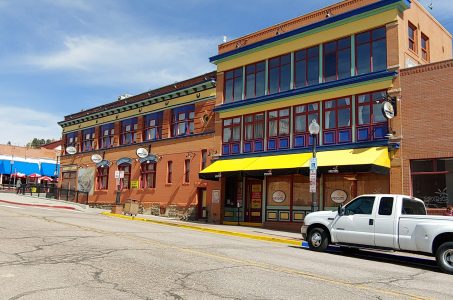Atlantic City Gaming Numbers Soar, as Casino Property Tax Breaks Floated
Posted on: November 17, 2021, 12:33h.
Last updated on: November 17, 2021, 07:26h.
Atlantic City casinos endured a most difficult and unprecedented 2020, and pandemic concerns lingered into 2021. But the nine gaming resorts have more than rebounded in the latter part of the year.

Brick-and-mortar gross gaming revenue (GGR) in October totaled $237.5 million. That’s a 27 percent gain on October 2020, and a 15 percent premium compared with the same month in 2019.
Slot machines on the actual nine casino floors were predominantly responsible for the October rise. The terminals kept over $179.3 million of gamblers’ bets last month, which is considerably higher than the $147.5 million that the machines won in October 2019. Table games won $58.2 million.
Atlantic City has effectively extended its momentum from the summer into the fall season. Five casino hotels surpassed their brick-and-mortar results from October 2019 and the other four were within striking distance,” said James Plousis, chairman of the New Jersey Casino Control Commission.
Internet gaming continues to flourish despite the strong return of retail play in Atlantic City. In fact, October set a new iGaming GGR record, as the interactive platforms won $127 million.
With revenue included from casino and horse racetrack sports betting, October ’21 GGR from all verticals totaled just shy of $448.7 million. That is $110.6 million better than last October.
Property Payment Reductions
There’s an effort underway in the Trenton capital to reduce how much property tax payments that the Atlantic City casinos will be required to pay in the coming years.
Under their current PILOT (payment-in-lieu-of-taxes) arrangement, instead of paying property taxes based on their assessments, the nine resorts collectively guarantee New Jersey and Atlantic County that they will pay at least $120 million. That number climbs based on the preceding year’s total GGR.
For instance, if the casinos report a total 2021 GGR between $3.4 billion and $3.8 billion, they’re on the hook for $165 million.
Year to date, casino GGR from all verticals stands at $3.49 billion. But a large chunk of that revenue comes from iGaming and online sports betting. Outgoing Senate President Stephen Sweeney (D) has heeded the casino industry’s request to have revenues derived online – which is shared with their third-party operators – be stripped from the property payment calculation.
January through October, iGaming GGR is at approximately $1.15 billion. Casino sportsbooks have also won $243 million in 2021. Sports betting revenue is not broken down by the state’s Division of Gaming Enforcement, but the vast chunk of it comes online.
Critics Will Likely Emerge
Atlantic City casinos argue that their iGaming and mobile sportsbook revenue shouldn’t be included in the PILOT calculation. That’s because their interactive partners, like DraftKings and FanDuel, don’t have any skin in Atlantic City. They take their share of the profits elsewhere.
But with Atlantic City casinos experiencing even better than pre-pandemic market conditions, that could be a tough sell. Dennis Levinson, Atlantic’s county executive, says amending the PILOT fee structure will hurt residents.
The loss in property tax relief could be in the millions of dollars,” Levinson said recently.
Plousis added in his October 2021 GGR remarks that Atlantic City casinos are faring well, and that should continue to be expected.
“All of the operators have the tools that are needed to successfully compete in this market,” Plousis said.
Related News Articles
Most Popular
Mirage Las Vegas Demolition to Start Next Week, Atrium a Goner
Where All the Mirage Relics Will Go
Most Commented
-
Bally’s Facing Five Months of Daily Demolition for Chicago Casino
— June 18, 2024 — 12 Comments
















No comments yet